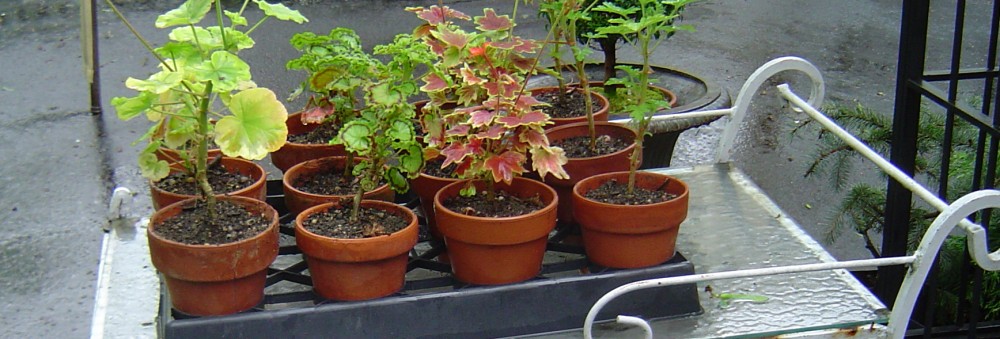The exhibit with that title just closed at the Metropolitan Museum of Art in Manhattan. I saw it when it had just opened in the spring – a time when we were all so tired of the protracted winter. Remember how spring seemed like it would never come? This art show was exactly what my spirit needed. For a good hour or two I was lost in the gardens and parks rendered by the artists of the nineteenth century. It got my imagination fired, my gardening juices flowing and I emerged with plans and ideas for my own gardening life.
But what other information I gathered was how the parks informed the public of that time. What they saw in these communal spaces were echoed in their own gardens. This was transforming for the people.
At the time, explorers were sending home vast shipments of botanical specimens. Nurserymen were actively hybridizing plants and making available new and diverse selections. Royal properties were opening up for the people to see and public green spaces were created for Parisians to enjoy in their city. Those living in the suburbs and further in the country were inspired to create their own flower gardens.
And so began the important role that public parks and gardens play in our lives.
It struck me that this vital purpose of gardens and parks open to the populace is just as significant today as it was then. By simply being there for ones leisure to commune with nature, escape from the demands of quotidian life and take in the beautiful sights, smells and sounds is purposeful enough. However, they also instruct and inform both professional and amateur gardeners as well as those who visit for artistic and aesthetic inspiration.
For me personally, as one who grew up with the tropical plants in India, the learning curve was steep. There was little I could relate to or identify in the North American garden. I had so much to learn! As a graduate student, I made numerous visits to the Chicago Botanical Gardens and the Lincoln Park Conservatory to both escape the pressure of academia and to learn about the new and exciting plants I was discovering. Everywhere I traveled in the US and in Europe, the public gardens became a must see. On moving to New York, the New York Botanical Gardens and Wave Hill were my go-to places right away. In subtle and not so subtle ways, my own personal style and tastes evolved.
So, here I am today – with strong opinions and a depth of horticultural knowledge that has grown exponentially since those early years. But here’s the thing – I still seek out gardens and parks open to the public everywhere I go. I’m acutely aware of the continued need to learn more, seek ideas and keep up with the advances in the field.
The NYBG, Wave Hill, the Brooklyn Botanical Gardens, Central Park and the popular new-kids-on-the-block the High-Line and Untermyer Gardens, remain dear to my heart and mind. I’m privileged to live in a region that also boasts other smaller but vital treasures like Storm King, Inverness, Stonecrop and several others.
The learning and sheer pleasure of visiting public gardens and parks never stops. They are the frontiers of horticultural understanding and information. Their continued discoveries, research, trials and collections are of an importance that cannot be overstated. I salute every one of them and all those hardworking individuals who create, maintain and continue to develop them for us. To entertain and inform is a tall order.
With an upcoming trip to Amsterdam, you can bet the Hortus Botanicus will be the first place I will visit. There are other Dutch gardens and nurseries on my list too. Rest assured I’ll tell you all about them in due course.
Note – Given how much I value public gardens, I am thrilled and honored to be involved in the upcoming symposium : “Great American Public Gardens: Successes and Challenges “ on September 29. Following solo presentations by the Directors of Horticulture of Wave Hill, the High Line and Untermyer Gardens, I shall be moderating a panel discussion with the three notables themselves.
I hope you will make it a point to attend. The third part of the symposium will be guided tour of Untermyer Gardens. A veritable treat I promise.
Here are a few glimpses of the gardens-
Untermyer :

My superheroes. Garden-makers of Untermyer and Wave Hill. L-R: Timothy Tilghman, John Trexler, Marco Polo Stufano, Drew Schuyler, Louis Bauer
Wave Hill:
The High Line ( in winter):
(c) 2018 Shobha Vanchiswar
[do_widget “Blog Subscriptions (Jetpack)”]
















Beautiful photos and beautiful writing, as always. Thanks
Marci Jacqui!